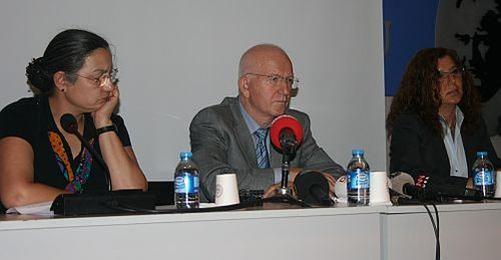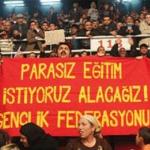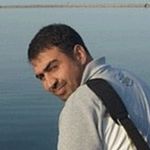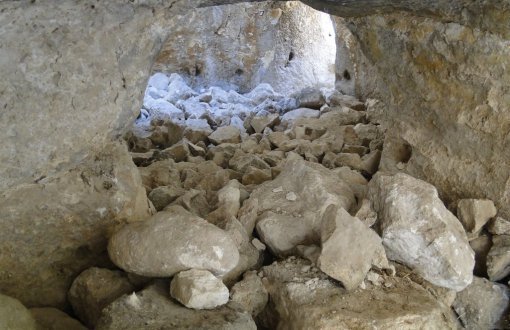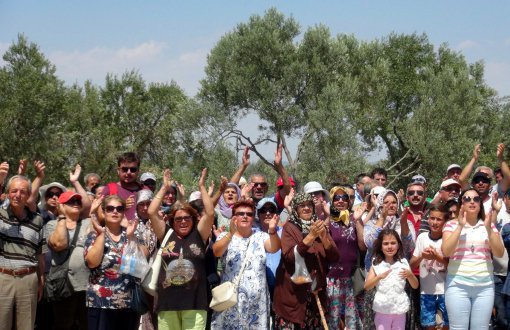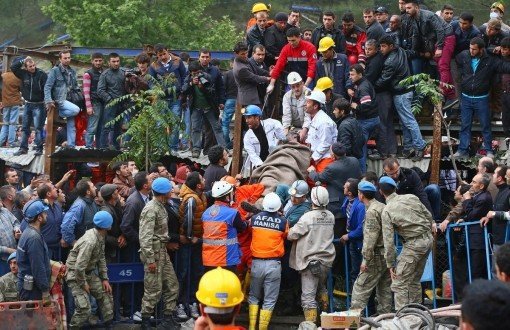"University Students' Collective Use of Freedom of Expression" is the title of a report that was prepared by an independent delegation joined by teaching staff from the Istanbul, Kocaeli and Marmara University, lawyers of the Istanbul Bar Association and representatives of the Turkish Medical Association (TTB) and the Turkish Human Rights Foundation (TİHV).
The report was introduced to the public at the Istanbul Bar Association on Thursday (21 September) by Dr. Ümit Ünüvar of the Forensic Medicine Specialists Association, Yeşim Yeşilyurt and Arzu Becerik of the bar association, the President of the TİHV, Şebnem Korur Fincancı, and Prof İbrahim Kaboğlu.
"Tear gas causes serious health damage"
Ünüvar pointed out that violence against university students used by police forces frequently remained unpunished. The main reason for this was "deficiencies in the medical documentation", the expert explained.
"We saw that the forensic medicine reports given to the students did not comply with the Istanbul Protocol. Students were being examined superficially without taking off their clothes or telling their story".
Ünüvar stressed that the so-called "tear gas" that was used often and extensively in recent times was a chemical gas that seriously damaged a person's health.
"This gas is known to affect the eyes, respiration and the skin in a short term. When used extensively, the gas causes lung oedema and can create fatal damage in the cardiac and nervous system. The long-term effects of the gas are not known yet but animal tests revealed that it has a carcinogenic effect".
"Education is being interrupted even if they are acquitted"
Yeşilyurt noted that they looked at the cases of 150 students who were all acquitted eventually. Yet, these students became victims throughout the process she said and added, "Students who are left on trial for years are deprived of their right to education. They are being acquitted but in the meantime their credit has been cancelled and they were thrown out of their hall of residence".
Yesilyurt drew attention to a recent increase in the number of students who were charged with "membership of a terrorist organization" because they wanted to voice their requests. The application of "deferring the pronouncement of judgement" violates the students' right to exculpation, the lawyer criticized.
Yeşilyurt emphasized that students were still being tortured.
"The problem of not being able to tolerate opposition"
Prof Kaboğlu said that even unpopular laws were being violated by obstructing university students from actions done in the context of freedom of expression and by arresting students.
"If a protest action was carried out without violence, banners and slogans of the students are part of their right to freedom of expression. However, the students are being arrested without any legal basis and there is no way out".
"This is a democracy problem stemming from the inability to accept opposition. This report aims to show the situation and to prevent such incidents from happening again".
The report includes the decision to establish a "University Monitoring and Observation Unit" in order to be able to follow up violation against university students in the education year 2011-2012. (NV/VK)
Istanbul Protocol
The UN 'Manual on Effective Investigation and Documentation of Torture and other Cruel, Inhuman or Degrading Treatment or Punishment' is commonly known as the Istanbul Protocol (IP). The protocol is supposed to be an essential tool for the effective investigation and documentation of torture and to be one of the most important measures to prevent torture.





